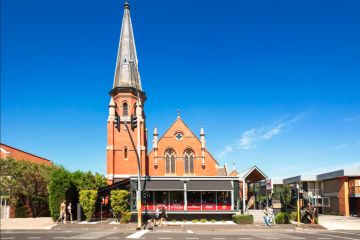Why the cost of negative gearing tax breaks is likely to rise

The cost of negative gearing tax concessions is set to soar as interest rates rise, meaning Australian taxpayers could spend billions of dollars to offset private landlords’ lost income in coming years, experts say.
Abolishing the contentious tax policy is one of the fairest and least economically damaging ways to help repair the public budget, top economists say.

A property is negatively geared when the cost of interest and expenses linked to owning a rental is more than the income it generates each year. Landlords can claim this cost as a tax deduction against their wage income to pay less tax.
At its peak, negative gearing cost taxpayers more than $9 billion in 2007-08 thanks to high mortgage rates. That cost fell to $166.5 million in 2019-20, the smallest amount in two decades, the latest figures from the Australian Taxation Office released this week show.
The federal government has repeatedly said it will focus on multinational tax reform, and ruled out abolishing negative gearing tax concessions.
But experts have warned that the cost of negative gearing will significantly increase again thanks to rising mortgage rates with one economist predicting it could cost the public purse up to $6 billion.

AMP Capital’s chief economist Shane Oliver said while it was unlikely the cost of negative gearing would reach peak levels of 2007-08, it would increase substantially.
“We will see a substantial rise in the cost of negative gearing, which won’t get as high as 2008, but it will push substantially in that direction,” Oliver said.
“I wouldn’t be surprised if we got to $5 to $6 billion per annum in net rental incomes, but it won’t go back to previous highs,” he said, adding that it would peak when the average variable rate hits 6 per cent and flow through in the 2023-24 financial year.
He said the cost of negative gearing dropped to a low in 2019-20 due to declining variable mortgage rates and a slowdown in investor lending after macroprudential measures.

While the current strength of the rental market would help partly offset negative gearing claims, an increasing number of investors piled into the market during the pandemic property boom at significantly higher levels of debt too, Oliver said.
“A 10 per cent rise in rents will partly offset the increased loss of the property of higher rates but if interest rates double it doesn’t nearly offset that increase in interest costs,” he said.
“It’s the same question as ‘will rising wages offset the cost of rising cost for owner occupiers?’ Partly but not much. The rents and wages are going up but when you see a doubling in interest rate costs they’re not going to keep up with that.”
Independent economist Saul Eslake said the combination of negative gearing and the capital gains tax discount would cost taxpayers significantly in coming years as the tax settings encourage property investors to defer and permanently reduce tax.
“With interest rates rising the probability is more landlords will start reporting losses again and those who do will report bigger ones,” Eslake said.
He said defenders of negative gearing fail to highlight that it is overwhelmingly used by the wealthy to reduce their tax.
“Someone in the top tax bracket is more than three times as likely to be a negatively geared landlord as someone who has taxable income of less than $90,000,” he said.
“It is primarily used by people in the top tax bracket either to get them out or to reduce the amount they pay at the top rate.”

Eslake said while it would be in bad faith for the federal government to break their election promise this term, it should be revisited in the next as it would be a fair and equitable budget repair measure in the long term and a policy decision that already lags international standards as the conservative Reagan administration in the US and David Cameron’s government in the UK had already abolished it in the 1980s and 2015, respectively.
“The irony is this is portrayed as a left-wing thing to do. Scaling back tax privileges enjoyed by property investors is not the exclusive preserve of left-wing governments.”
Grattan Institute economic policy program director Brendan Coates said it was inevitable negative gearing would increase.
“It will cost the federal government substantially as interest rates rise. They’ve been going down over time as rates over time have decreased,” Coates said.
Abolishing negative gearing and capital gains tax discounts are some of the easiest measures for budget repair, Coates said.
“The interaction of those two distorts investment decisions, those tax breaks which largely benefit the wealthy, are substantial budgetary costs,” he said.
“One less renter is one more first home buyer which is policy objective in its own right.”
We recommend
We thought you might like
States
Capital Cities
Capital Cities - Rentals
Popular Areas
Allhomes
More

/http%3A%2F%2Fprod.static9.net.au%2Ffs%2F6228f943-6f22-49bb-8fa2-f854efc77c4e)
/http%3A%2F%2Fprod.static9.net.au%2Ffs%2Fe47af0d4-0a3a-4e02-bff7-3394a71f05e4)







